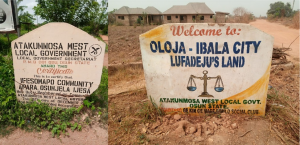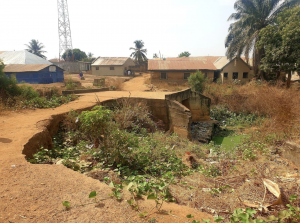Over the past few decades, concerted efforts have been made to improve women’s participation in various sectors of the economy, including education, finance, health, and politics. Significant progress has been achieved in telling a simple story– Women are whole individuals and not property to be owned. However, the statistics tell a sobering story of how far we still have to go—not just in participation but also in representation.
Women are inherently industrious and natural protectors. How, then, have they come to be part of the marginalized groups across the globe?
According to the National Women Economic Empowerment (WEE) Policy Plan, 70% of women in Nigeria live in poverty. Women constitute about 70-80% of the agricultural labor force, yet only 10% of them are landowners. Furthermore, only 1 in 5 board members of companies listed on the Nigerian Stock Exchange are women. These figures highlight the systemic barriers that continue to impede progress.
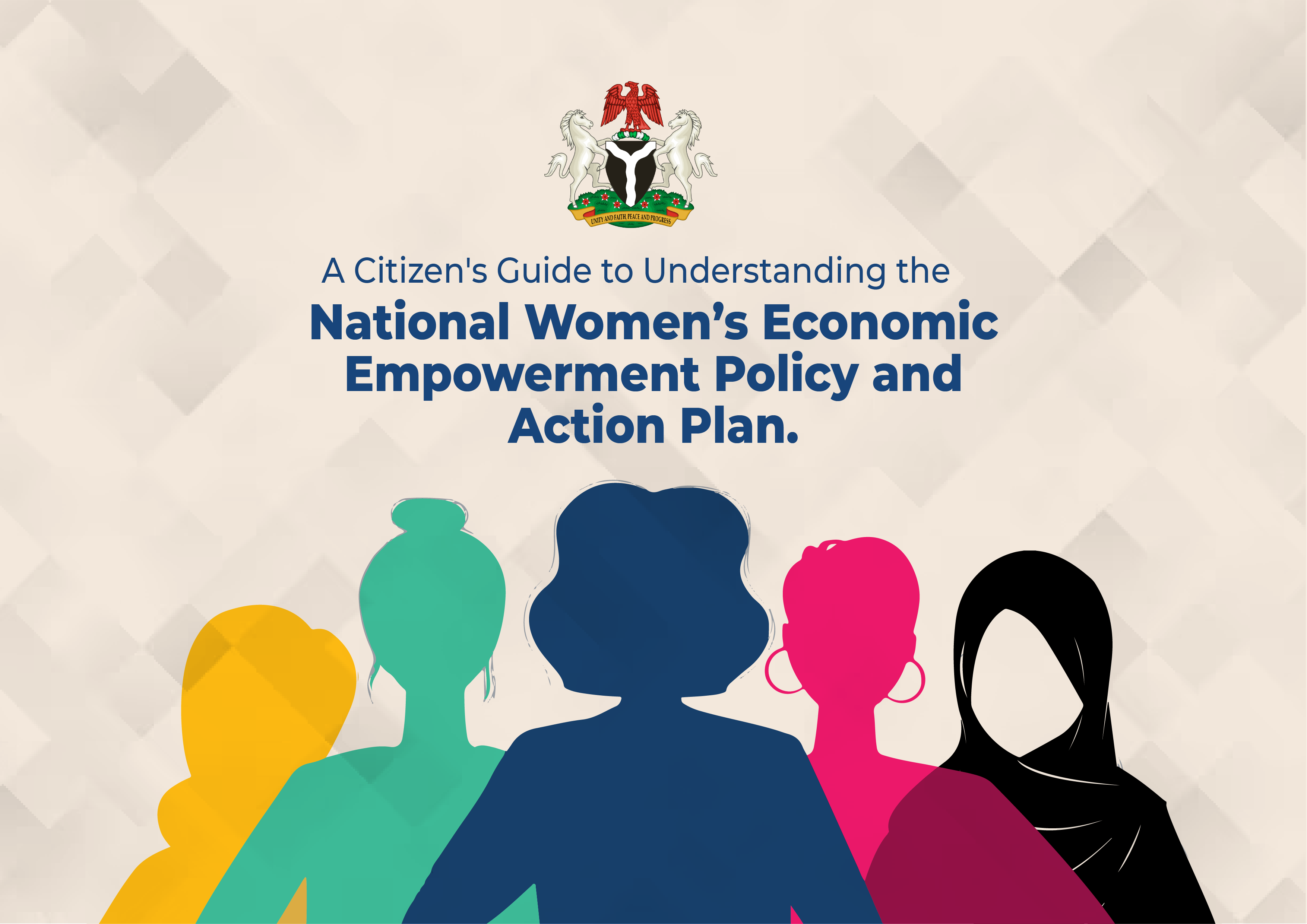
The African Development Bank (AfDB) stated in 2021 that by the end of the year, the bank will provide nearly $500 million, of which $150 million will be used for African agricultural women. This was supposed to translate to more job opportunities and wealth creation for women but it’s almost the opposite of what was intended.
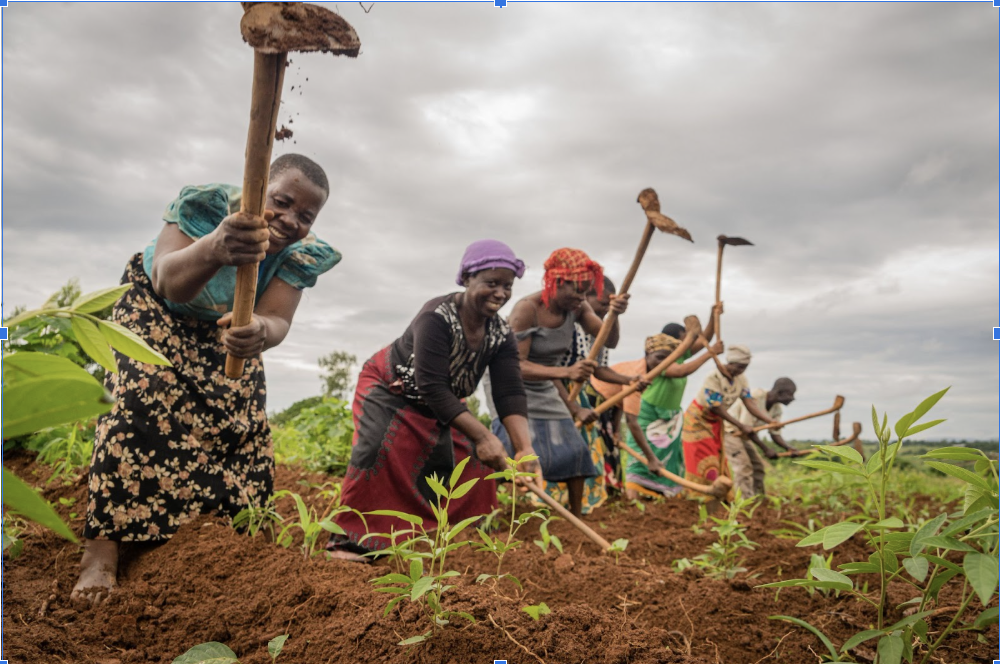
Women in Agriculture
Ideally, nature should not require such a relentless push to take its course. Restructuring society to acknowledge women as individuals and integral parts of every system should not be such an uphill battle—unless, of course, the current systems are inherently unnatural.
Yet, the budget remains far from being gender-responsive. Femicide rates continue to rise, with little to no justice served. Laws affecting women are often made and debated by men, and in big 2025, child marriage persists as a grim reality. These challenges underscore the urgent need for systemic– or maybe, a DRASTIC change.
This urgency has spurred the rise of policies and systems aimed at promoting women’s education and empowerment. As a ‘pro-women’ individual, I am committed to leveraging every available platform to champion the radical idea that women are distinct, autonomous entities deserving of equal representation and opportunities.
In 2024, Tracka launched an initiative, “Governance for Women by Women,” aimed at increasing women’s participation in governance. This initiative is empowering women in local communities to engage in civic education and governance actively. By fostering collaboration among women’s groups, it has driven efforts toward community development and amplified women’s voices in decision-making processes.
According to Premium Times Ng, PBAT pledged to increase women representation in his administration. He said women would constitute 35% of all appointments, but when push came to shove, he only appointed 8 women in a 48-member cabinet. You can just tell there was no deliberate effort in actualizing this.
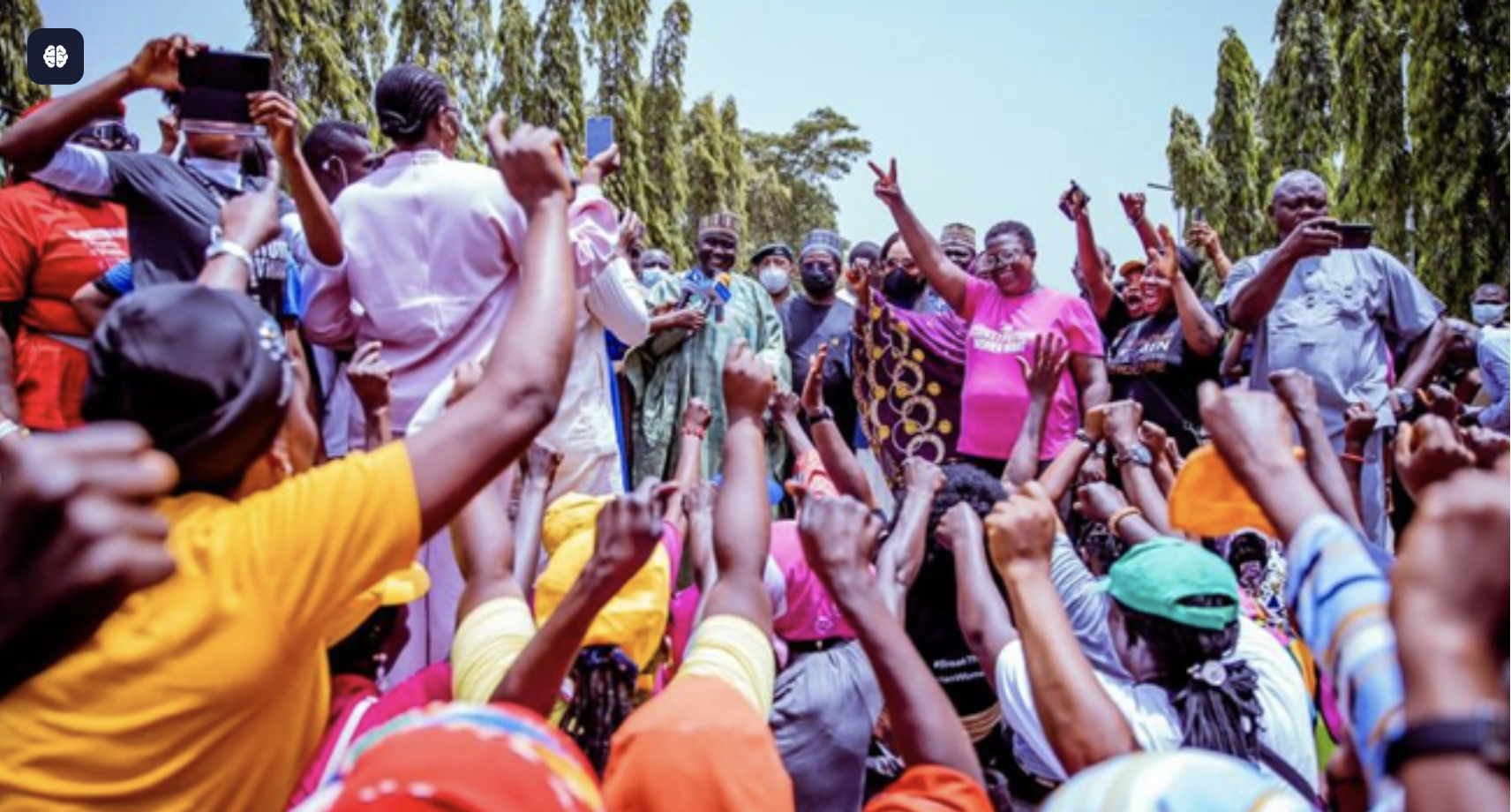
Excited women protesters at the declaration of the House of Representatives to review the 35% women representation bill
The GFWBW initiative by Tracka is an attempt to increase political involvement of women across the nation.
Recommendations: What should be done?
To address these challenges effectively, key stakeholders must take strategic actions.
- Government: Implement gender-responsive budgeting, enforce stricter penalties for gender-based violence, and ensure women have equal access to land, finance, and leadership opportunities. Empower the information ministry to effectively communicate beneficial women’s policies to the populace so a lot of women can key themselves into such.
- Civil Society Organizations (CSOs): Advocate for policy implementation, provide grassroots education on women’s rights, and create safe spaces for women to organize and demand representation.
- Media: Drive awareness campaigns against gender discrimination, highlight success stories of women in leadership, and hold policymakers accountable for gender-related commitments. Effectively communicate the existing policy to the public.
Looking ahead, the Governance for Women by Women project, plans to expand its reach by:
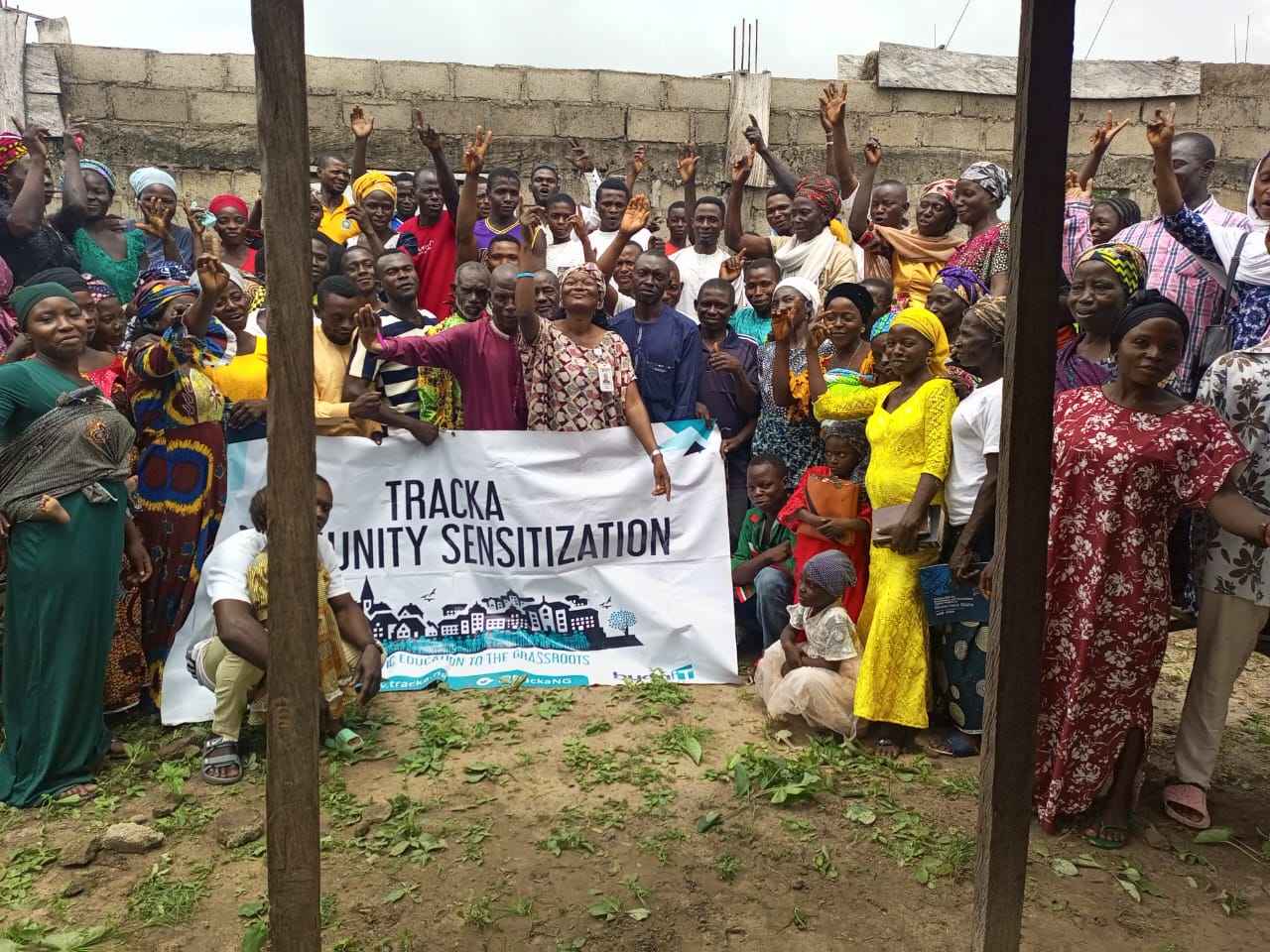
- Strengthening women’s leadership training in local communities.
- Establishing mentorship programs connecting young women with experienced female leaders.
- Collaborating with policymakers to ensure women’s concerns are reflected in governance decisions.
- Increasing civic education efforts to encourage more women to actively engage in governance and policy advocacy.
While these efforts are promising, they prompt critical questions: How long will it take to move the needle significantly? How long before hostile practices like child marriage and femicide are eradicated? How long until we achieve true gender equality, where women are fully represented, educated, and empowered?
The journey may be long, but each step forward brings us closer to a society where gender equality is not just an aspiration but a reality. The fight continues, and our commitment to systemic (or drastic) change must remain unwavering. In hopes that policies do not just end on paper but are passed into actionable structures.
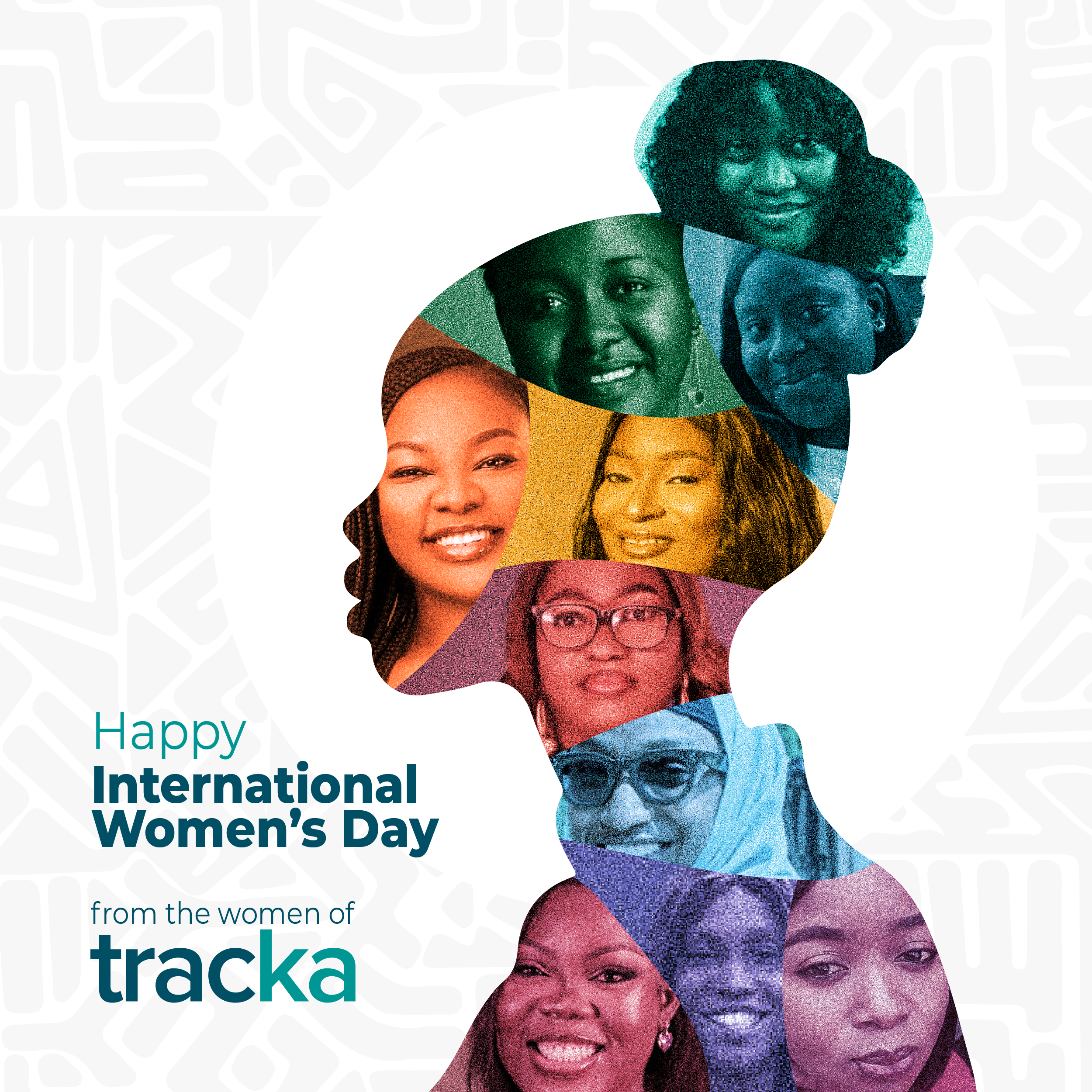
Ref:
- https://budgit.org/post_publications/a-citizens-guide-to-understanding-the-national-womens-economic-empowerment-policy-and-action-plan/
- https://www.premiumtimesng.com/gender/751866-updated-ministers-tinubu-ignores-campaign-promise-on-women-representation.html?tztc=1
- https://farmsquare.ng/afdbs-150-million-fund/
Story by: Ademide Ademola and Osiyemi Joshua

